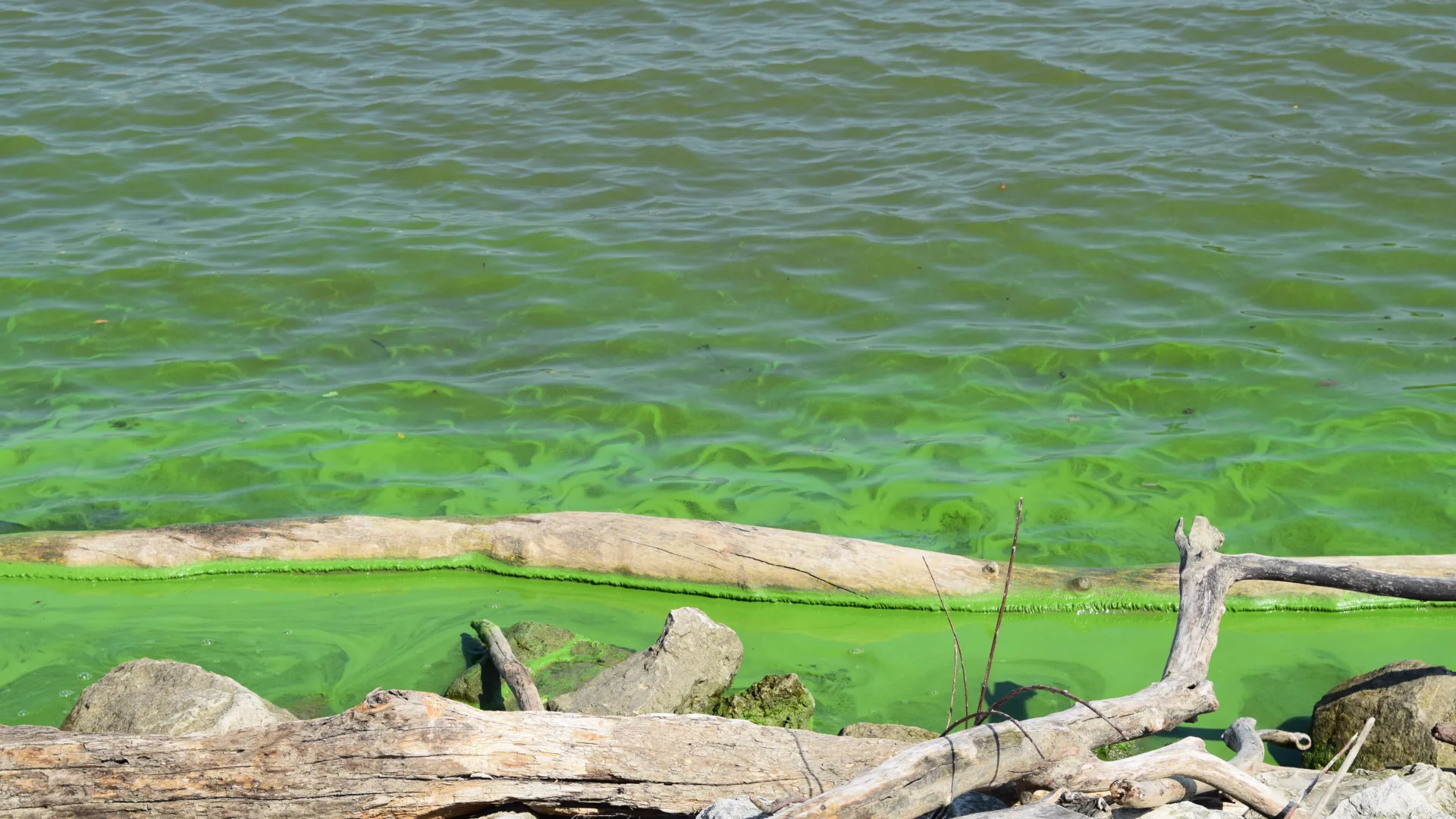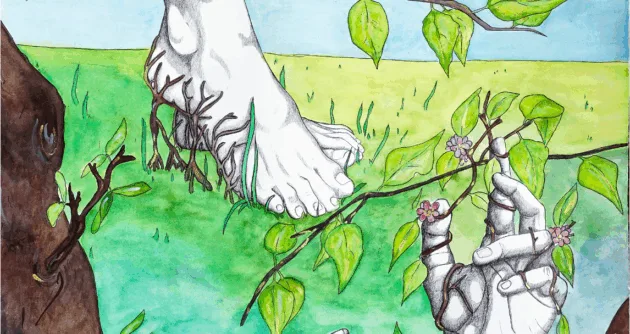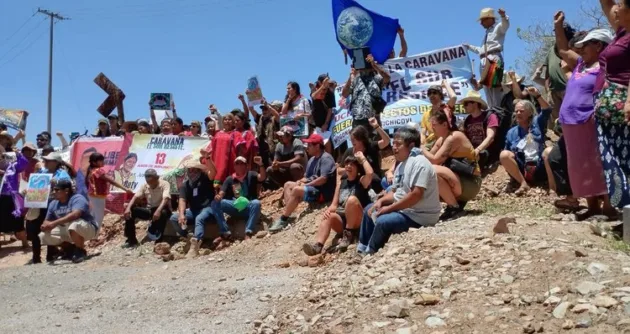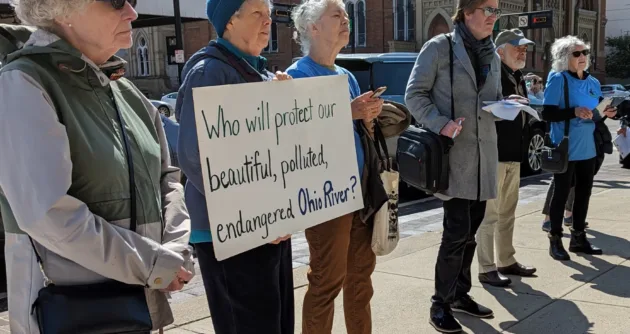Module three: Decolonizing Nature – a Movement’s Voice in the Rebellion
Tuesday, Sept. 29 at 6:30 pm EST.
For decades Lake Erie has had a reputation as a “dead lake.” It’s time for that to change.
In 2014 nearly 500,000 people lost their water in and around Toledo, Ohio due to a harmful bloom of toxic algae. In 2019, Lake Erie became the first ecosystem in the nation to have it’s right to exist, flourish, and thrive recognized in law – the Lake Erie Bill of Rights (LEBOR). The law has since been stifled by corporate opposition and state preemption, but these actions only reinforce that LEBOR posed a real threat to the status quo.
Join us for this final installment of a three part webinar series. In parts 1 and 2 we looked at a Community’s and a Great Lake’s rebellion against a system that allows both to be harmed. In this webinar we will broaden out the strategy of Rights of Nature as a global movement for systemic change. In order to profoundly change our relationship with Nature we must decolonize the law. Rights of Nature is rooted in Indigenous knowledge and must be expanded into western law and culture. Join us for an open discussion with CELDF legal professionals on decolonizing law, culture, and our relationship with Nature.
This is a three part series – please register for each module separately.
Module 1: A Community’s Voice in the Rebellion: Impacts on Nature and Community
Thursday, September. 3 at 6:30 pm EST. Watch Module One.
Module 2: A Lake’s Voice in the Rebellion: Violating the Rights of Lake Erie
Wednesday, September 9, 2020 at 6:30 pm EST. Watch Module Two.
Module 3: A Movement’s Voice in the Rebellion: Growing a Rights of Nature Movement
Tuesday, September 29, 2020 at 6:30 pm EST. Watch Below!
Speakers
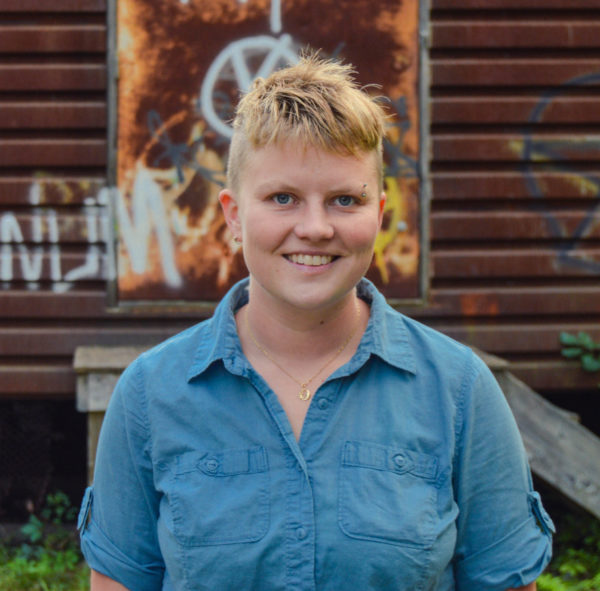
Kira Kelley is the chair of the Vermont National Lawyers Guild and a contract attorney with CELDF. As an anarchist and an abolitionist, Kira’s life’s work is to render the legal profession obsolete.
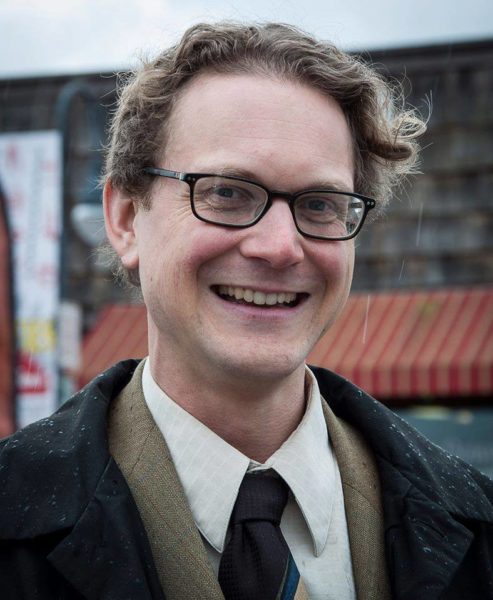 Lindsey Schromen-Wawrinis an attorney in Washington State, in Klallam Territory (nəxʷsƛ̕áy̕əm̕), where he also serves as a city councilmember. He has represented the Little Mahoning Watershed, Crystal Spring Ecosystem, and Lake Erie Ecosystem, and published on rights of nature in Representing Ecosystems in Court: An Introduction for Practitioners, 31 Tulane Envtl. L.J. 279 (2018); Nature’s Rights through Lawmaking in the United States, in La Follette & Maser (Eds.), Sustainability and the Rights of Nature in Practise (CRC Press 2019); and a forthcoming law textbook on earth law by Wolters Kluwer. He graduated from Oberlin College, and from Gonzaga University School of Law with highest honors and pro bono distinction.
Lindsey Schromen-Wawrinis an attorney in Washington State, in Klallam Territory (nəxʷsƛ̕áy̕əm̕), where he also serves as a city councilmember. He has represented the Little Mahoning Watershed, Crystal Spring Ecosystem, and Lake Erie Ecosystem, and published on rights of nature in Representing Ecosystems in Court: An Introduction for Practitioners, 31 Tulane Envtl. L.J. 279 (2018); Nature’s Rights through Lawmaking in the United States, in La Follette & Maser (Eds.), Sustainability and the Rights of Nature in Practise (CRC Press 2019); and a forthcoming law textbook on earth law by Wolters Kluwer. He graduated from Oberlin College, and from Gonzaga University School of Law with highest honors and pro bono distinction.
 Will Falk is a biophilic writer and lawyer. He believes the intensifying destruction of the natural world is the most pressing issue confronting us today. His first book How Dams Fall describing his relationship with the Colorado River and his involvement in the first-ever federal lawsuit seeking rights for a major ecosystem was published by HomeBound Publications in 2019. He is currently traveling through the Ohio River basin writing a book tentatively titled, The Ohio River Speaks. You can follow his journey at TheOhioRiverSpeaks.org.
Will Falk is a biophilic writer and lawyer. He believes the intensifying destruction of the natural world is the most pressing issue confronting us today. His first book How Dams Fall describing his relationship with the Colorado River and his involvement in the first-ever federal lawsuit seeking rights for a major ecosystem was published by HomeBound Publications in 2019. He is currently traveling through the Ohio River basin writing a book tentatively titled, The Ohio River Speaks. You can follow his journey at TheOhioRiverSpeaks.org.
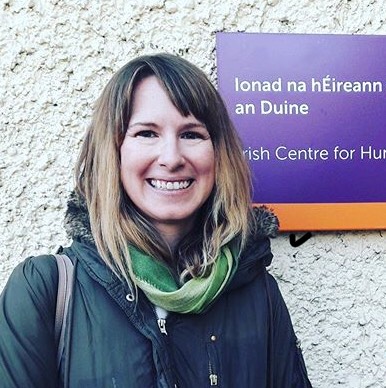 Karen Hoffmann is an attorney at Syrena Law in Philadelphia. Since 2017, she has worked with CELDF to represent communities across Pennsylvania fighting to protect their environment by advancing rights of nature. She also practices immigration law, and received the 2019 Pro Bono Award from the U.S. District Court for N.D. Illinois for litigation to reunite separated families. She believes the wrong ICE is melting.
Karen Hoffmann is an attorney at Syrena Law in Philadelphia. Since 2017, she has worked with CELDF to represent communities across Pennsylvania fighting to protect their environment by advancing rights of nature. She also practices immigration law, and received the 2019 Pro Bono Award from the U.S. District Court for N.D. Illinois for litigation to reunite separated families. She believes the wrong ICE is melting.
Module three: Decolonizing Nature – a Movement’s Voice in the Rebellion
Tuesday, Sept. 29 at 6:30 pm EST.
For decades Lake Erie has had a reputation as a “dead lake.” It’s time for that to change.
In 2014 nearly 500,000 people lost their water in and around Toledo, Ohio due to a harmful bloom of toxic algae. In 2019, Lake Erie became the first ecosystem in the nation to have it’s right to exist, flourish, and thrive recognized in law – the Lake Erie Bill of Rights (LEBOR). The law has since been stifled by corporate opposition and state preemption, but these actions only reinforce that LEBOR posed a real threat to the status quo.
Join us for this final installment of a three part webinar series. In parts 1 and 2 we looked at a Community’s and a Great Lake’s rebellion against a system that allows both to be harmed. In this webinar we will broaden out the strategy of Rights of Nature as a global movement for systemic change. In order to profoundly change our relationship with Nature we must decolonize the law. Rights of Nature is rooted in Indigenous knowledge and must be expanded into western law and culture. Join us for an open discussion with CELDF legal professionals on decolonizing law, culture, and our relationship with Nature.
This is a three part series – please register for each module separately.
Module 1: A Community’s Voice in the Rebellion: Impacts on Nature and Community
Thursday, September. 3 at 6:30 pm EST. Watch Module One.
Module 2: A Lake’s Voice in the Rebellion: Violating the Rights of Lake Erie
Wednesday, September 9, 2020 at 6:30 pm EST. Watch Module Two.
Module 3: A Movement’s Voice in the Rebellion: Growing a Rights of Nature Movement
Tuesday, September 29, 2020 at 6:30 pm EST. Watch Below!
Speakers

Kira Kelley is the chair of the Vermont National Lawyers Guild and a contract attorney with CELDF. As an anarchist and an abolitionist, Kira’s life’s work is to render the legal profession obsolete.
 Lindsey Schromen-Wawrinis an attorney in Washington State, in Klallam Territory (nəxʷsƛ̕áy̕əm̕), where he also serves as a city councilmember. He has represented the Little Mahoning Watershed, Crystal Spring Ecosystem, and Lake Erie Ecosystem, and published on rights of nature in Representing Ecosystems in Court: An Introduction for Practitioners, 31 Tulane Envtl. L.J. 279 (2018); Nature’s Rights through Lawmaking in the United States, in La Follette & Maser (Eds.), Sustainability and the Rights of Nature in Practise (CRC Press 2019); and a forthcoming law textbook on earth law by Wolters Kluwer. He graduated from Oberlin College, and from Gonzaga University School of Law with highest honors and pro bono distinction.
Lindsey Schromen-Wawrinis an attorney in Washington State, in Klallam Territory (nəxʷsƛ̕áy̕əm̕), where he also serves as a city councilmember. He has represented the Little Mahoning Watershed, Crystal Spring Ecosystem, and Lake Erie Ecosystem, and published on rights of nature in Representing Ecosystems in Court: An Introduction for Practitioners, 31 Tulane Envtl. L.J. 279 (2018); Nature’s Rights through Lawmaking in the United States, in La Follette & Maser (Eds.), Sustainability and the Rights of Nature in Practise (CRC Press 2019); and a forthcoming law textbook on earth law by Wolters Kluwer. He graduated from Oberlin College, and from Gonzaga University School of Law with highest honors and pro bono distinction.
 Will Falk is a biophilic writer and lawyer. He believes the intensifying destruction of the natural world is the most pressing issue confronting us today. His first book How Dams Fall describing his relationship with the Colorado River and his involvement in the first-ever federal lawsuit seeking rights for a major ecosystem was published by HomeBound Publications in 2019. He is currently traveling through the Ohio River basin writing a book tentatively titled, The Ohio River Speaks. You can follow his journey at TheOhioRiverSpeaks.org.
Will Falk is a biophilic writer and lawyer. He believes the intensifying destruction of the natural world is the most pressing issue confronting us today. His first book How Dams Fall describing his relationship with the Colorado River and his involvement in the first-ever federal lawsuit seeking rights for a major ecosystem was published by HomeBound Publications in 2019. He is currently traveling through the Ohio River basin writing a book tentatively titled, The Ohio River Speaks. You can follow his journey at TheOhioRiverSpeaks.org.
 Karen Hoffmann is an attorney at Syrena Law in Philadelphia. Since 2017, she has worked with CELDF to represent communities across Pennsylvania fighting to protect their environment by advancing rights of nature. She also practices immigration law, and received the 2019 Pro Bono Award from the U.S. District Court for N.D. Illinois for litigation to reunite separated families. She believes the wrong ICE is melting.
Karen Hoffmann is an attorney at Syrena Law in Philadelphia. Since 2017, she has worked with CELDF to represent communities across Pennsylvania fighting to protect their environment by advancing rights of nature. She also practices immigration law, and received the 2019 Pro Bono Award from the U.S. District Court for N.D. Illinois for litigation to reunite separated families. She believes the wrong ICE is melting.
